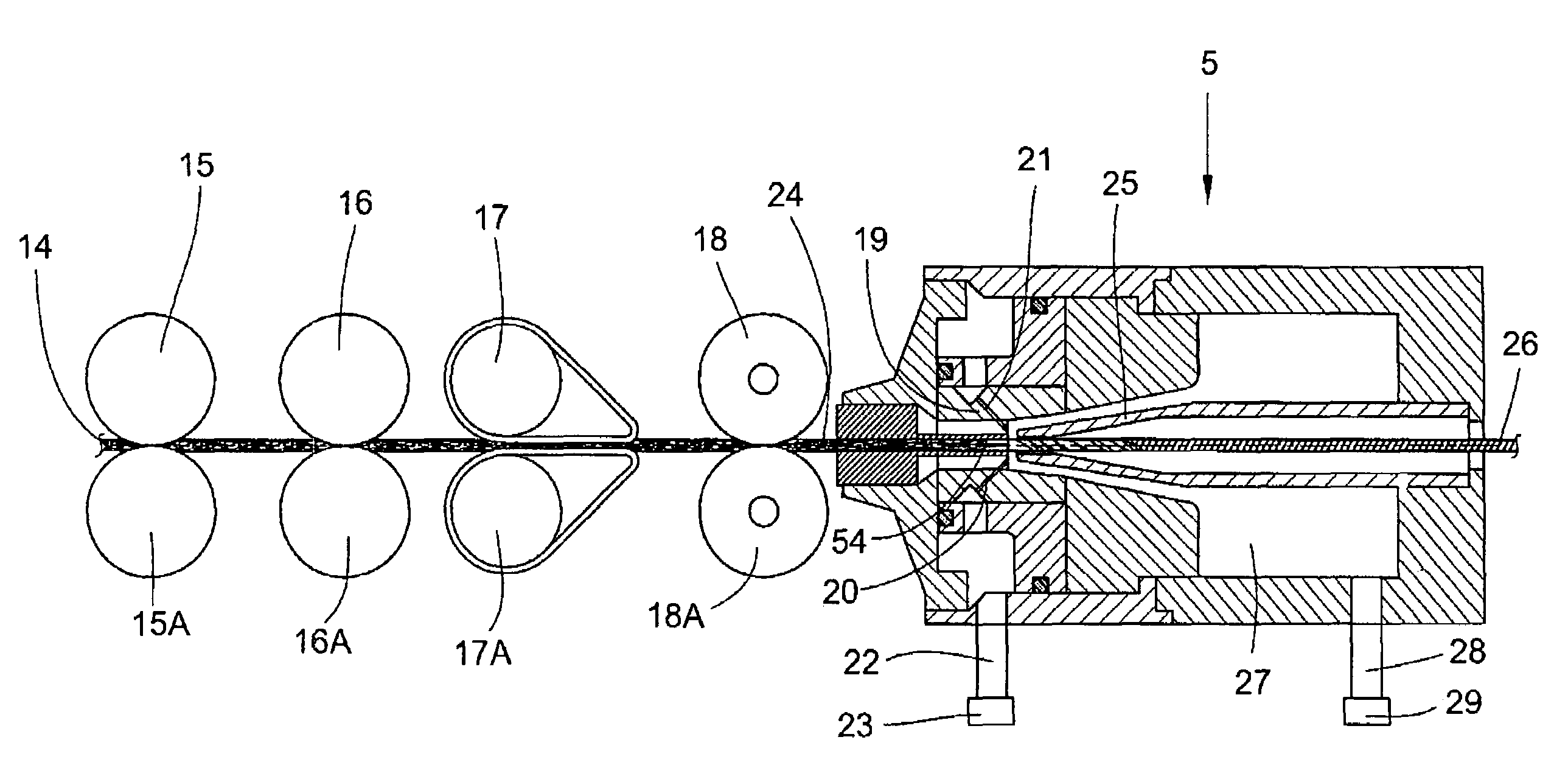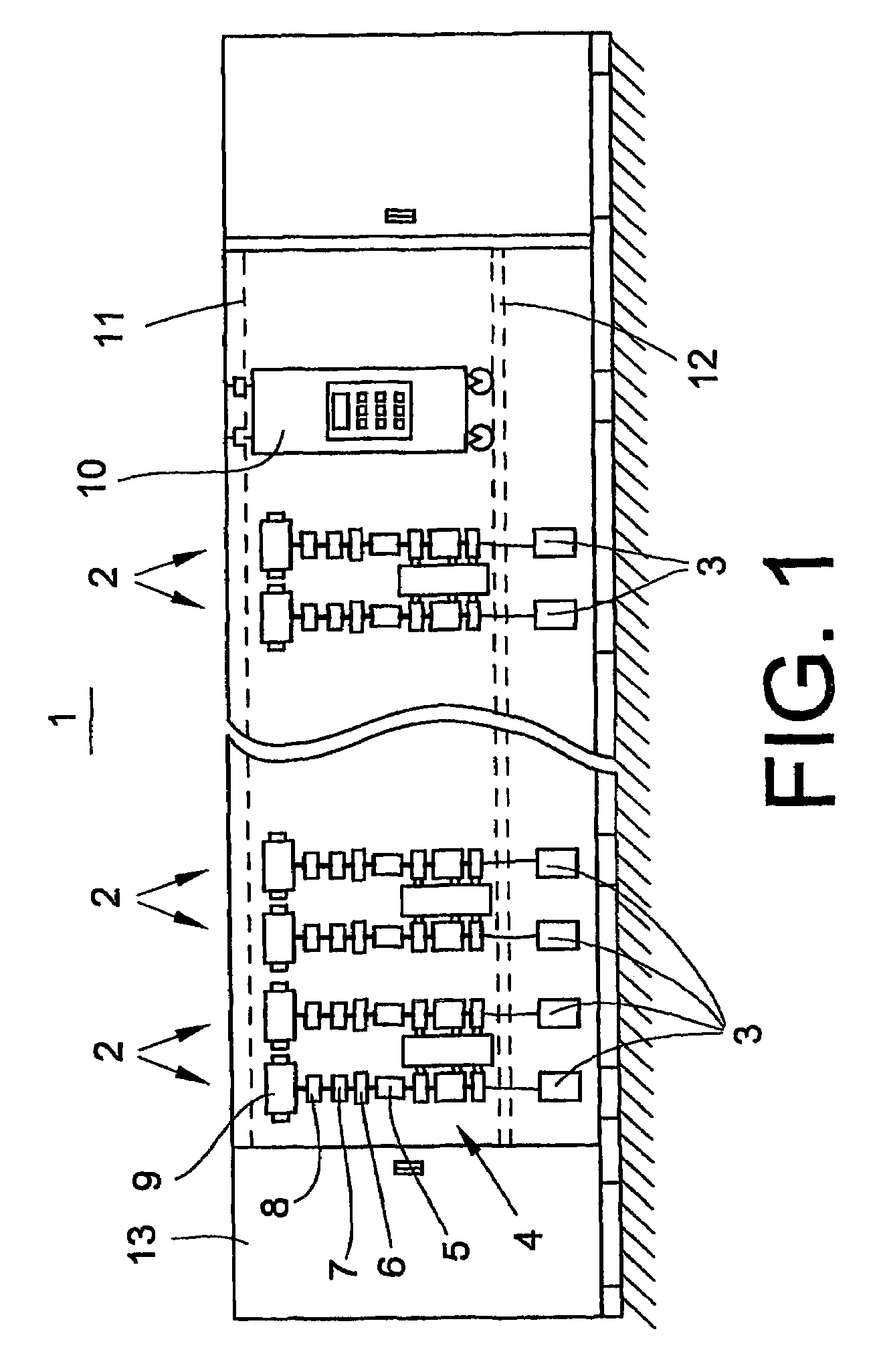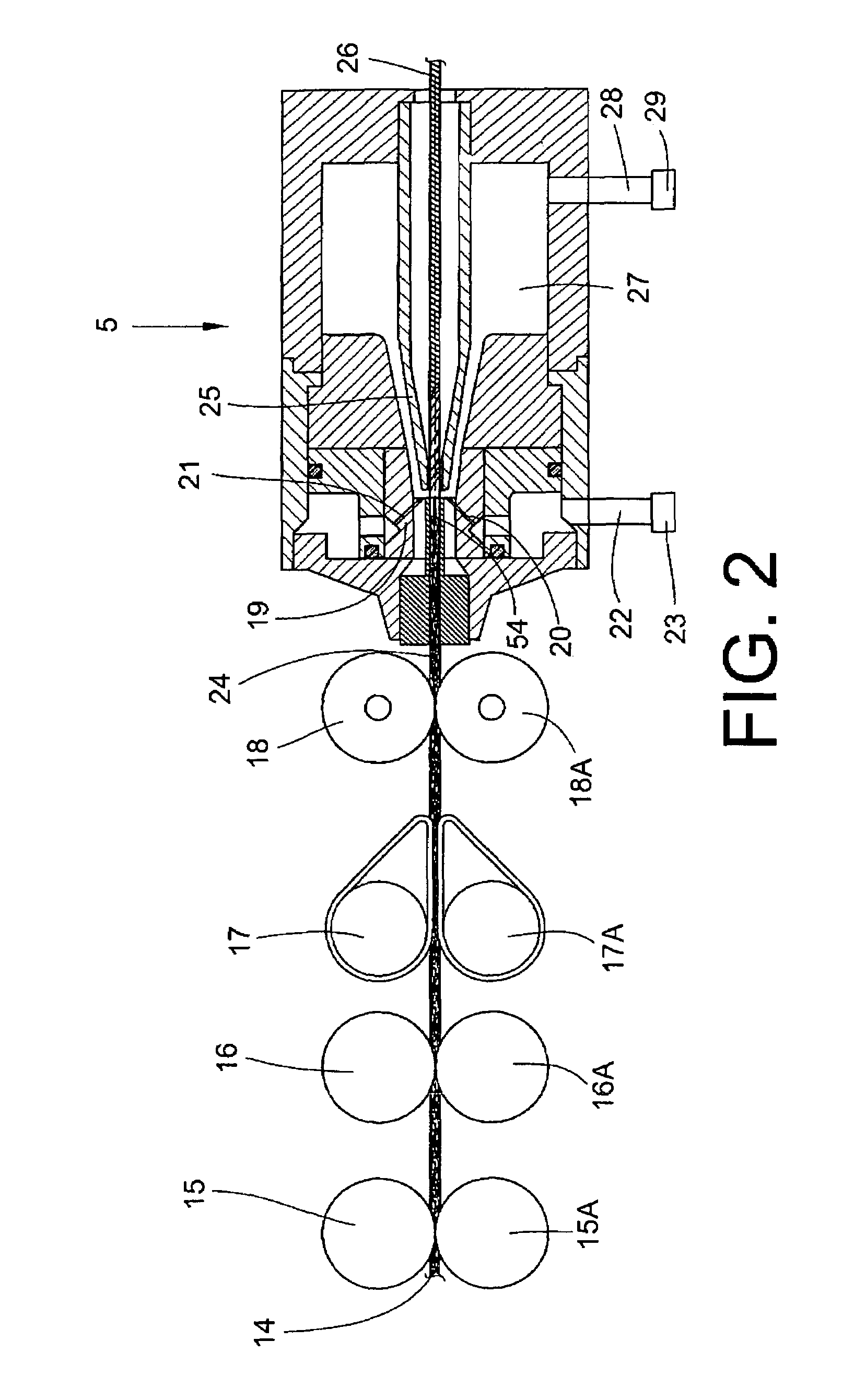Joining method on a jet spinning machine, spinning device and jet spinning machine
a jet spinning machine and spinning device technology, applied in the direction of yarn, open-end spinning machines, transportation and packaging, etc., can solve the problems of the spinning unit of the german patent publication, the inability to produce spun thread, and the inability to insert the auxiliary threads
- Summary
- Abstract
- Description
- Claims
- Application Information
AI Technical Summary
Benefits of technology
Problems solved by technology
Method used
Image
Examples
Embodiment Construction
[0034]The jet spinning machine 1 shown in FIG. 1 has a plurality of spinning stations 2 arranged next to one another in a row. Each spinning station 2 comprises a fibre band source 3, which may be configured, for example, as a spinning can, a drawing frame 4, a spinning device 5, a pair of take-off rollers 6, a yarn clearer 7, a thread transfer mechanism 8 and a take-up bobbin configured as a cross-wound bobbin 9. An operating carriage 10 is guided along the spinning stations 2, on bars 11, 12. A drive unit 13 is arranged at one end of the jet spinning machine.
[0035]FIG. 2 shows a drawing frame with a subsequent spinning device 5 and the passage of fibres. The fibre band 14 drawn off from the fibre band source 3 is drawn in by the pair of upper and lower rollers 15, 15A arranged as feed rollers and drawn with the pairs of upper and lower rollers 16, 16A; 17, 17A; 18, 18A. A tweezer-like twist retaining mechanism 54 and a spinning nozzle mechanism 19 are arranged in a first component...
PUM
| Property | Measurement | Unit |
|---|---|---|
| diameter | aaaaa | aaaaa |
| thickness | aaaaa | aaaaa |
| pressure | aaaaa | aaaaa |
Abstract
Description
Claims
Application Information
 Login to View More
Login to View More - R&D
- Intellectual Property
- Life Sciences
- Materials
- Tech Scout
- Unparalleled Data Quality
- Higher Quality Content
- 60% Fewer Hallucinations
Browse by: Latest US Patents, China's latest patents, Technical Efficacy Thesaurus, Application Domain, Technology Topic, Popular Technical Reports.
© 2025 PatSnap. All rights reserved.Legal|Privacy policy|Modern Slavery Act Transparency Statement|Sitemap|About US| Contact US: help@patsnap.com



